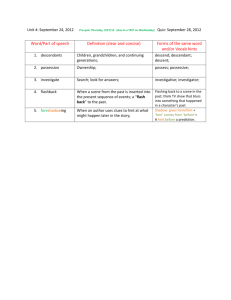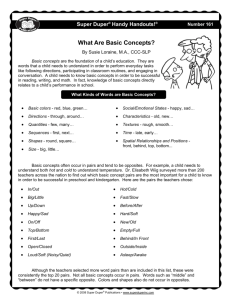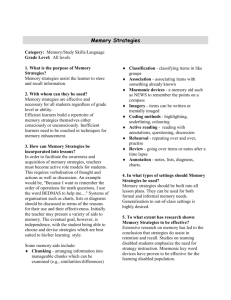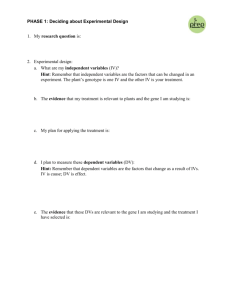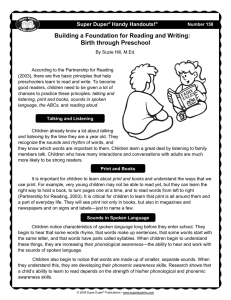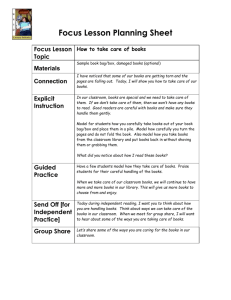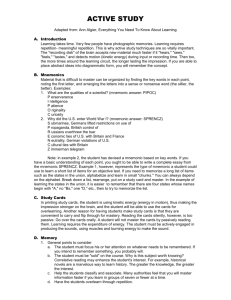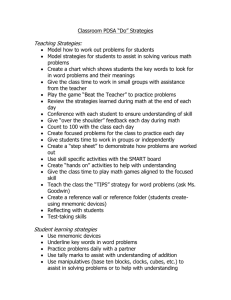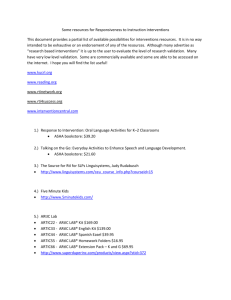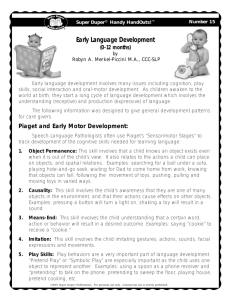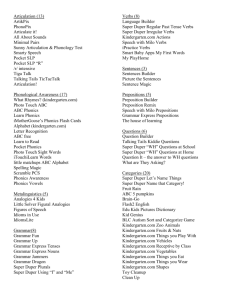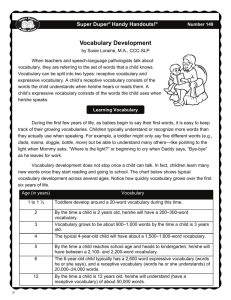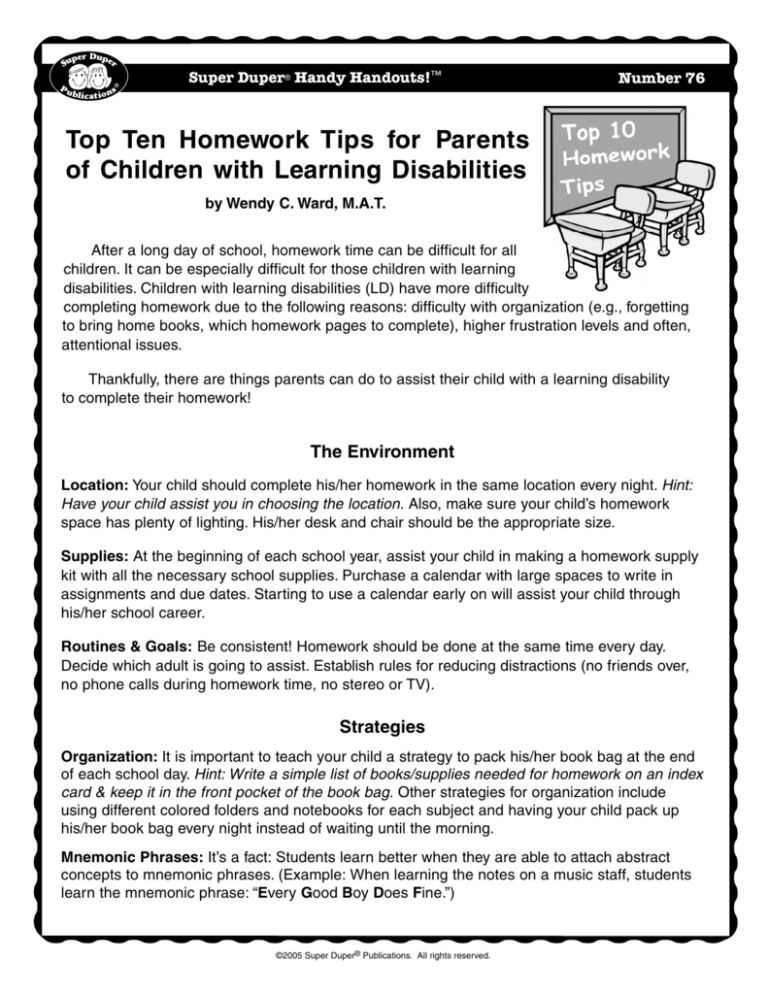
Super Duper® Handy Handouts!™
Number 76
Top Ten Homework Tips for Parents
of Children with Learning Disabilities
by Wendy C. Ward, M.A.T.
After a long day of school, homework time can be difficult for all
children. It can be especially difficult for those children with learning
disabilities. Children with learning disabilities (LD) have more difficulty
completing homework due to the following reasons: difficulty with organization (e.g., forgetting
to bring home books, which homework pages to complete), higher frustration levels and often,
attentional issues.
Thankfully, there are things parents can do to assist their child with a learning disability
to complete their homework!
The Environment
Location: Your child should complete his/her homework in the same location every night. Hint:
Have your child assist you in choosing the location. Also, make sure your child’s homework
space has plenty of lighting. His/her desk and chair should be the appropriate size.
Supplies: At the beginning of each school year, assist your child in making a homework supply
kit with all the necessary school supplies. Purchase a calendar with large spaces to write in
assignments and due dates. Starting to use a calendar early on will assist your child through
his/her school career.
Routines & Goals: Be consistent! Homework should be done at the same time every day.
Decide which adult is going to assist. Establish rules for reducing distractions (no friends over,
no phone calls during homework time, no stereo or TV).
Strategies
Organization: It is important to teach your child a strategy to pack his/her book bag at the end
of each school day. Hint: Write a simple list of books/supplies needed for homework on an index
card & keep it in the front pocket of the book bag. Other strategies for organization include
using different colored folders and notebooks for each subject and having your child pack up
his/her book bag every night instead of waiting until the morning.
Mnemonic Phrases: It’s a fact: Students learn better when they are able to attach abstract
concepts to mnemonic phrases. (Example: When learning the notes on a music staff, students
learn the mnemonic phrase: “Every Good Boy Does Fine.”)
©2005 Super Duper® Publications. All rights reserved.
Fatigue: In order to prevent fatigue when completing homework, provide frequent, short breaks.
Chunking: Break assignments into shorter tasks. Hint: Do not wait until Thursday night to start
studying for Friday’s spelling test! Start Monday and study for 10 minutes each night.
Encouragement/Motivation
Praise: Provide frequent verbal (“Wow! You’re working so hard on these multiplication
problems!”) and non-verbal praise (hugs, pats on the back).
Homework Contracts: Use homework contracts and focus on one goal at a time. Hint: Have
your child assist in writing the contract to develop ownership. Example: “I, Melvin, will complete
all of my homework each night for five nights in a row. When I accomplish this, I can go to the
movies.”
Monitoring Time on Task: Using a timer or an hourglass will make the passage of time more
concrete. Your child can actually see the amount of time that is passing and how much time
he/she has left to work.
References
Richards, Regina G., Tool Kit for Parents: Being an Efficient Homework Helper, 2004.
(www.ldonline.org)
Name
Date
www.superduperinc.com
Call 1-800-277-8737
Order Anytime!
FAX 1-800-978-7379
©2005 Super Duper® Publications. All rights reserved.


